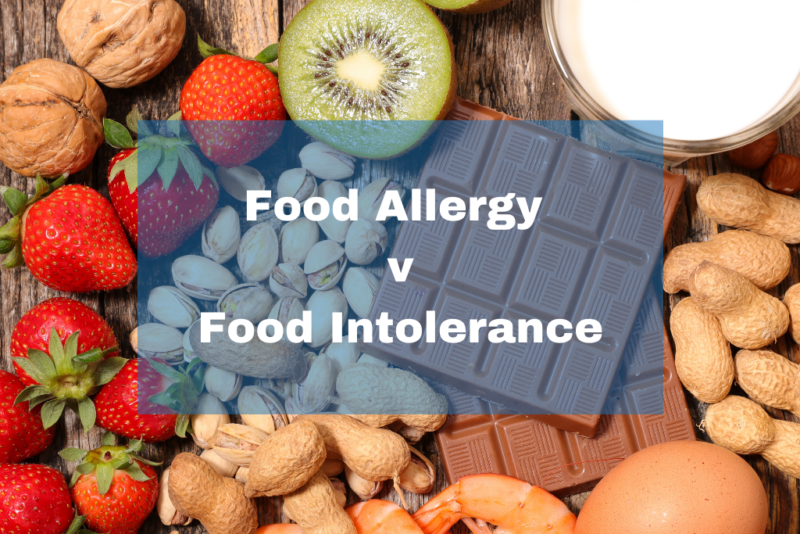
Food intolerances are surprisingly common. It is estimated that nearly a fifth of the population has some sort of intolerance to food. While the most common foods that cause this disorder are milk, cheese, eggs, nuts, and fish, medical experts are unsure of how this disorder comes to be.
If you have an intolerance to a specific food, it begs the question of can intolerances go away? The answer to this problem is, we simply don’t know. If that left you disappointed, fear not as there are ways to cope with the disorder.
Intolerance vs Allergy

People often confuse these two disorders. While looking at it from the surface, they’re quite similar. Many symptoms overlap, making it difficult to determine if you have an intolerance or an allergy to a particular food.
A medical expert can help you determine which disorder you have. But self diagnosing is very difficult if you have no medical knowledge. What makes both disorders different is the way it affects us. Allergies are an immune system response, while intolerances are digestive system responses.
Naturally, most symptoms of intolerance are connected to our digestive system. This means you’ll usually experience stomach aches, nausea, vomiting, etc. But it’s also common for intolerances to cause headaches.
One additional difference is that allergies are significantly more dangerous. Food intolerance, on the other hand, is nowhere near severe enough to put your life in danger. You might be well aware of the fact that people with peanut allergies can suffer pretty horrendous effects if they get into contact with peanuts. And in some cases, the lives of these people are in severe danger.
But you’re more likely to have an intolerance to a particular food than to have an allergic reaction. If you want the full rundown, it’s best to do a food intolerance test at intolerancelab.co.uk to know more.
One of the biggest mistakes that people can make regarding these two conditions is choosing to self-diagnose without consulting their GP, or even worse, choosing the seek treatment and trying out different things without the advice of an expert.
When we notice that we are not feeling okay after eating a type of food, we instantly choose to ignore that and try using probiotics or active carbon and hope that the issue will go away on its own. The problem with this is that if you choose to continue eating things that you are not supposed to, you risk a lot of health issues, even though some of the warning signs will be avoided.
So, no matter if you think that you are allergic or if you think that you are just sensitive to some types of foods, it is always best to consult with a specialist first, and then choose the right course of treatment for your specific condition.
How To Cope With Food Intolerances?

Just like with allergies, the best course of action is to stay away from the foods that your digestive system is intolerant to. While this might not have been the answer you’re looking for, it’s the only way we know how to quote-on-quote “treat” intolerances.
Moreover, you’re probably stuck for life with it. If you’re intolerant to milk, you will likely experience digestive problems throughout your life.
Since not all intolerances affect us the same way, you might be able to cope simply by eating them less often and in much smaller proportions. While this might sound like a quick-fire solution, it’s one way to make sure the symptoms don’t overwhelm you when trying to eat your favorite foods.
Another thing that you need to know is that if you try to eat the things that you are sensitive to, hoping that the problem will just go away with time, you should know that chances are, you may make things worse.
We are all taught that we need to “toughen up” and that we need to approach the issue head-on, which means facing our fears. However, when it comes to this, you should definitely not expose your body to the things that it is sensitive to, in hopes that the issue will just disappear.
Even though in some rare cases, your body may get used to the things that it is not currently excepting, in most cases, your pains and issues will become worse in time.
Experts suggest that those who choose to continue eating the items they are intolerant to will damage the lining of their intestines, and this will prevent the small intestine from absorbing the nutrients that we usually get from the foods we consume. With time, this will not cause only greater pain and discomfort, but it can also lead to anemia and malnutrition. These conditions are far more difficult to treat, and chances are, you will spend a lot of time and money recovering from them.
So, it is far better to try and avoid the things that you are sensitive to than trying to get your body used to those items. If you cannot steer away completely from them, then indulge in them no more than once per month and in really small quantities. Talk to your medical professional if there is a way for you to protect your stomach and intestines and not make things worse by choosing these goods.

Conclusion
Food intolerances are common, inconvenient, but they’re not life-threatening. That last part is a stark contrast to food allergies, where the effects are oftentimes deadly. Intolerances are usually an inconvenience, rather than a problem. They might cause stomach aches, nausea, vomiting, and headaches. The degree of these symptoms depends on a lot of factors.
But most people can cope with them by simply eliminating the food their diet or reducing the amount they consume. More so, we don’t know of any other way to make food intolerances go away.
Even though this is not something that people want to hear, especially when it comes to steering away from their favorite dishes, know that on today’s market there are a lot of amazing replacements that will help you get the flavor that you crave, without putting your health in danger. Explore new recipes, try out new things, and remember that it is better to live a happy and healthy life than to risk it all over one ingredient.



















